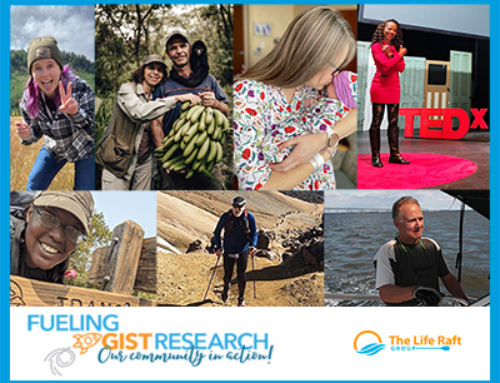A recent report from the Institute of Medicine outlines the advantages of data sharing from clinical trials.
The authors state that data sharing can lead to the discovery of new treatment modalities as well as the improvement of clinical care.
Data sharing presents challenges and risks that require policies that will protect the privacy of participants as well as pertinent data. The report outlines guiding principles and a format for responsible sharing of clinical trial data.
The authors advocate for increased investment in technology to optimize the process of data management and sharing.
LRG’s Model for Data Sharing
The LRG’s Patient Registry and GIST Collaborative Tissue Bank are already on the cutting edge of data sharing, with patient privacy at the forefront. Approved by the IRB, we follow industry standards in data collection and protection. This data can follow patients across multiple trials, institutions and borders, and act as central repositories of clinical information.
Our unique Patient Registry is composed of information directly obtained from GIST patients and caregivers from all over the world. Using this data, we examine questions that are not being answered quickly enough by current trials, or questions that are not being looked at in clinical trials.
We monitor existing treatments as well as treatment and study response trends that can help our members reach tomorrow’s cure. We reduce the lethal lag-time between discoveries of important data to communication.
New Clinical Trials Model
Since the LRG is not limited by the design of traditional clinical trials, we have significantly increased flexibility over areas that we can examine. We are better able to follow patients over long periods of time and across institutional boundaries. Because the LRG was founded by patients and caregivers, we are in touch with the real life issues that come up on a daily basis. This connection allows us to track treatments and issues that are of concern to GIST patients today.
Perhaps more importantly, by moving beyond the role of patient advocates to become patient scientists, we are changing the medical research environment. We can help design and conduct our own studies. We are claiming a voice at the decision making table, and influencing what research is being done and how it is being conducted.
The LRG maintains the largest GIST patient provided clinical database in the world, and has joined with cancer researchers to create a one-of-a-kind tissue bank, where patient tissue is linked to GIST clinical histories. The GIST Collaborative Tissue Bank is designed to allow multiple researchers to share rare tissue. Patient privacy is maintained as identifying information is removed from tissue samples and patient clinical histories. Data is shared with researchers, thereby speeding up the communication of vital results and reducing duplication of efforts.
The LRG has developed a new Clinical Trials Model, which combines a strategy for identifying clinical trial participants, creating a clinical trial network and new cost-effective clinical trials protocols, and identifying promising drugs. The model is supported by a virtual clinic infrastructure.
Soon patients will be able to access their own record anytime and anywhere, and to enter information in the database, and upload scan and lab reports. They will be able to compare their record to the general population as well as within a particular group in the registry, mutation type or treatment line. Patients will be able to see how others in similar situations are managing their GIST, treatments or side effects.
As data sharing is the wave of the future to expedite potential treatment modalities, it will be vital for healthcare organizations to develop models that are both innovative, and protective of patient information.



